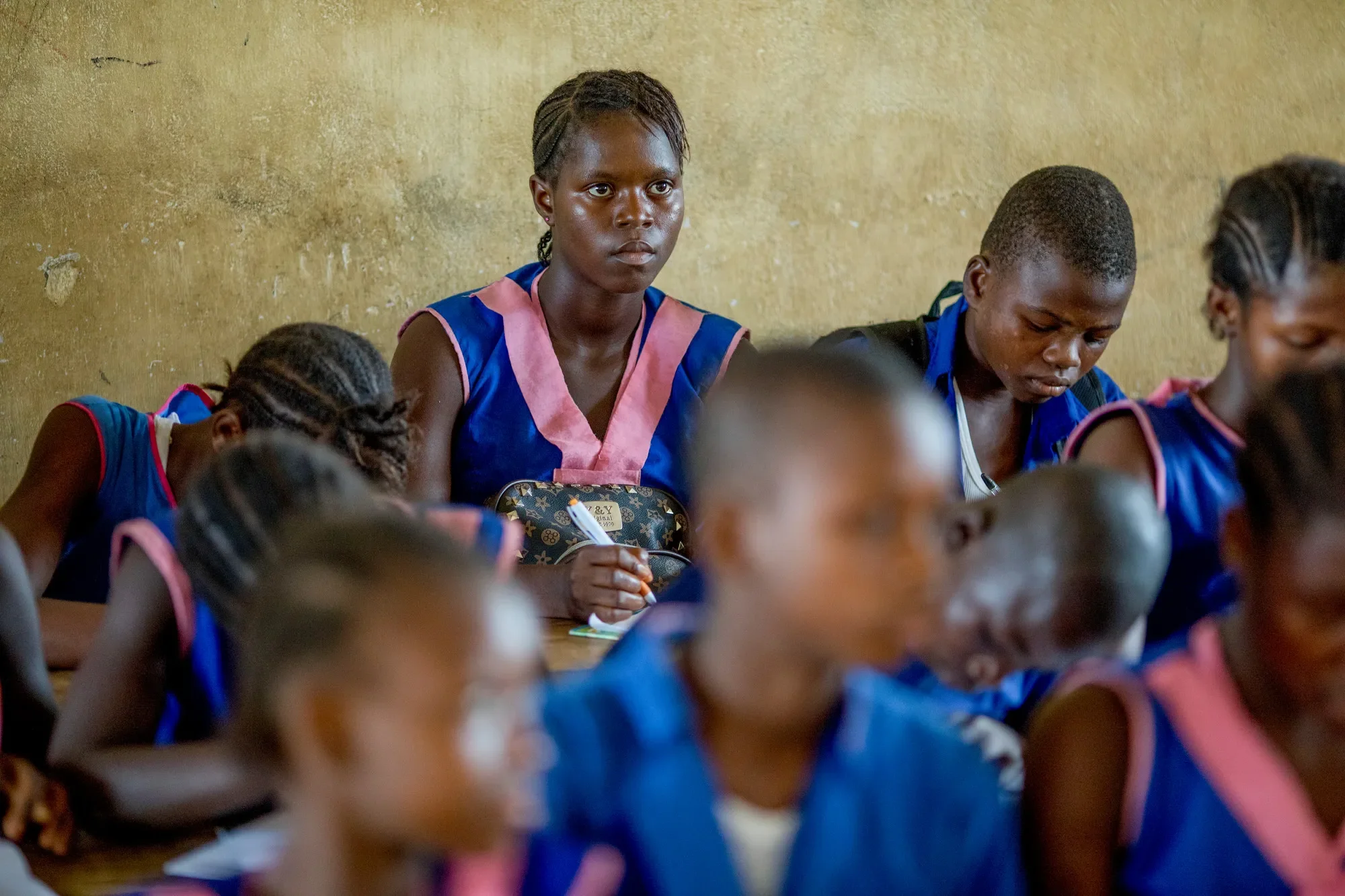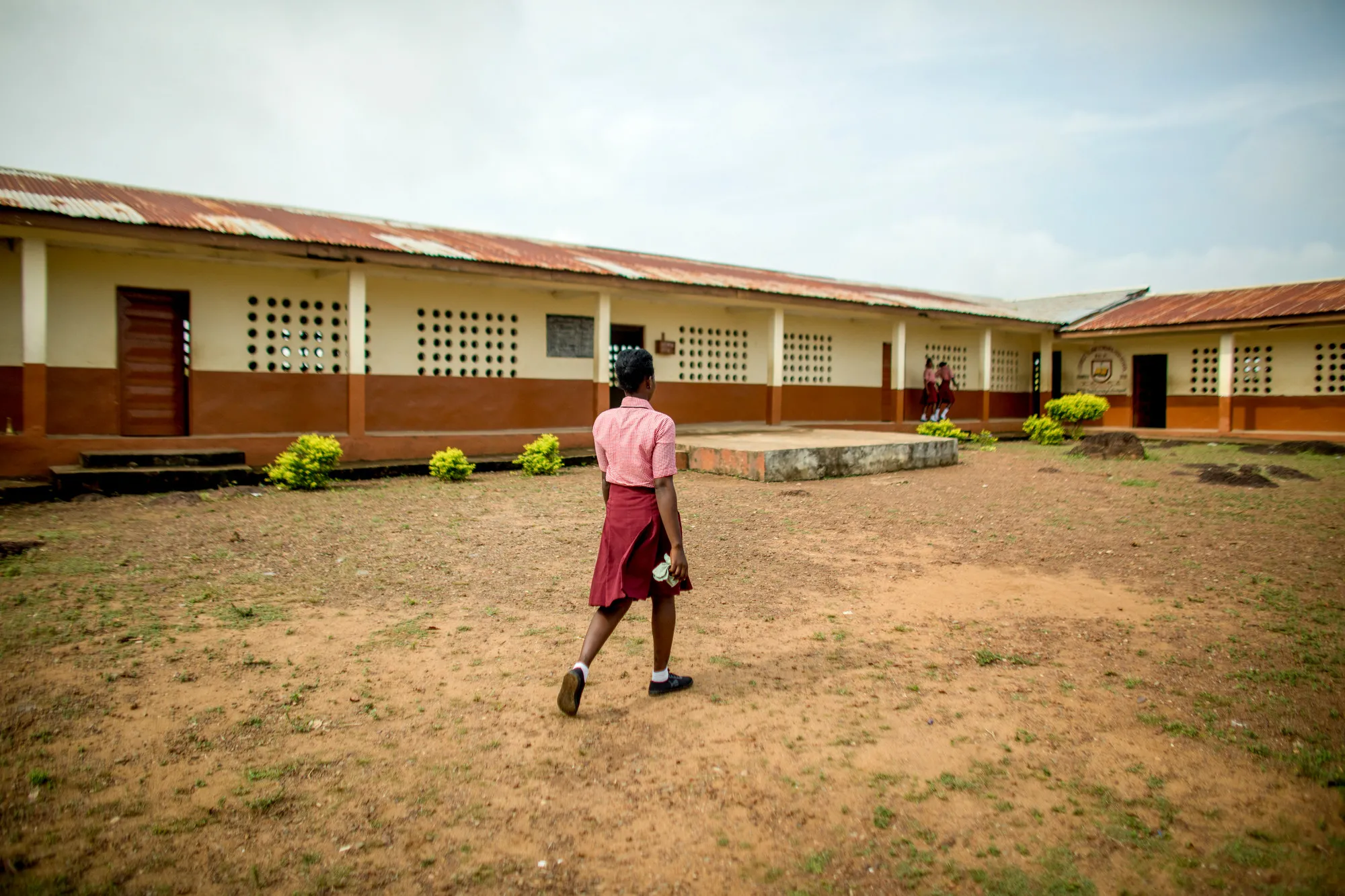Kadiatu never planned to drop out of school.
“I enjoyed school. I went there every day. My grades were fine,” she says.
The 15-year-old from Freetown, Sierra Leone, voluntarily left school after becoming pregnant. If administrators found out she was expecting, they would have banned her, and possibly shamed her in the process.
A 2015 Amnesty International report found that schoolgirls in Sierra Leone were “subjected to degrading procedures” by school administrators to determine if they were pregnant, such as having their body felt or being compelled to take urine tests.
“No one wanted to be friends with me. I was embarrassed and isolated.”
For the last five years, pregnant students like Kadiatu have been banned by law from attending mainstream schools in Sierra Leone. This policy was reversed by the government earlier this year, after the country’s top court declared it was discriminatory and violated human rights.
The decision was hailed by human rights groups, many of whom filed a case against the Sierra Leone government in 2018. After the court ruling in December 2019, the government announced in March 2020 it would reverse the policy.


